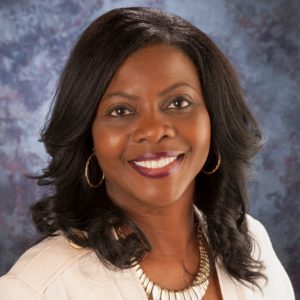This blog post was written by Arizona State University graduate student Dr. Angel Cruz. In addition to studying Food Policy and Sustainability Leadership at ASU, Angel is the academic and extension initiatives manager at the Center for Environmental Farming Systems (CEFS) at NC State University where she champions sustainable ag education and career development across North Carolina.
We walked through numerous hallways and seemingly endless offices to finally arrive at the Agricultural Research Service (ARS) headquarters in the USDA’s Whitten Building in Washington, DC and meet with Dr. Chavonda Jacobs-Young, the administrator of the ARS. As an agricultural scientist myself, it was the meeting I was most looking forward to all week!
As we walked into the conference room, a large plaque, with headshots of all the ARS administrators, hanging above the conference table greeted us. As I surveyed the faces, it was clear that Dr. Jacobs-Young was the first female and the first person of color to hold the position. I was even more excited to meet her and it felt appropriate to be meeting with her at the beginning of March, Women’s History Month.
Dr. Chavonda Jacobs Young has been the Administrator of the US Department of Agriculture’s ARS since 2014. Previously, she served as the Director of the Office of the Chief Scientist at USDA and was a senior policy analyst for agriculture in the White House Office of Science and Technology. Plus, she received her M.S. and Ph.D. degrees from North Carolina State University (my alma mater and current employer!).

As soon as Dr. Jacobs-Young started to give us a brief overview of her work at the ARS, her passion for agriculture, research, and decreasing food insecurity was clear. The ARS is the USDA’s scientific in-house research agency. In short, their mission is to find solutions to agricultural problems on a local and global scale. When thinking about all the agricultural challenges we face, it seems overwhelming, but Dr. Jacobs-Young said her approach comes from an Arthur Ashe quote: “start where you are, use what you have, do what you can.” According to her, the problems we face today - ranging from climate change, to pests, diseases, and increasing consumer understanding - may seem overwhelming. However, we each have the capacity to make small discoveries and changes, and when we work together as a team, we can address the bigger challenges.
One aspect of the ARS that Dr. Jacobs-Young seemed most excited to discuss were the Regional Climate Hubs - although, I will admit that her enthusiasm for the topic might have been influenced by our own groups interest in climate change. I was especially excited about this topic because the Southeast Climate Hub is based in Raleigh, NC where I currently reside. According to many citizens, farmers and scientists, climate change is one of the biggest challenges facing our society today, which is why the work of the climate Hubs is so essential, especially for farmers.
The USDA's ten regional Climate Hubs are led by the ARS, with guidance and contributions from many other programs and agencies. Their main goal is to communicate climate adaptation and mitigation research and tools to agricultural producers and professionals regionally. Being from North Carolina, I understand the critical role of these hubs. For example, in NC, saltwater intrusion is an increasingly prevalent challenge faced by growers on the coast, where some of the most productive lands in the state are located. The Southeast Climate Hub has been working to share adaptation strategies directly with farmers and help them research remediation efforts. The Southeast Climate Hub is also looking at topics like the number of cooling days different peach varieties need, which I’m excited about because I look forward to our NC peach season every year. After hearing from Dr. Jacobs-Young and based on my own experience, I think these regional Climate Hubs will become increasingly important in the coming years.

Dr. Jacobs-Young ended her time with us by sharing that one of her goals for 2020 is to hire 1400 new ARS employees! It would certainly be an honor to serve our farmers and country by working for Dr. Jacobs-Young so if you or anyone you know is interested, checkout usajobs.gov.
For me, hearing her story of going from wood and paper science and working in academia to now being the head of the ARS made me excited about what the future might hold for me and other women and minorities hoping to make a difference through agriculture. Furthermore, seeing the impact she is making across the globe is a story of inspiration and action for all women.
On behalf of the entire ASU Food Policy and Sustainability Cohort, I would like to extend our sincere appreciation to Dr. Chavonda Jacobs-Young and her staff for giving us the opportunity to visit and learn more about how ARS is supporting our nation’s agriculture and food systems.
As we navigate these uncertain times it is more important than ever to have a robust network of food and agriculture policy leaders to make sensible and responsible decisions. Could you be one of those people? Learn more about answering this call by checking out the Food Policy and Sustainability Leadership Program at ASU!
